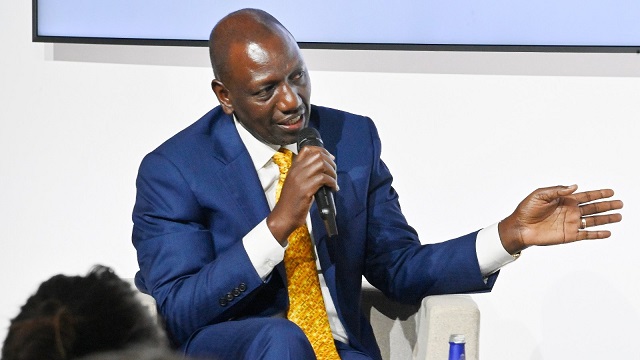
EAC remains the biggest market for Kenya’s value-added products such as Cement, Palm oil, Coated Flat-rolled Iron, Soap, Machinery
Kampala, Uganda | THE INDEPENDENT |Kenya’s decision to conclude negotiations for an Economic Partnership Agreement (EPA) with the European Union has sparked verbal fights with civil society organisations saying the deal poses an imminent danger to the integration of the East African Community and the African continent.
The CSOs in this equation are Southern and Eastern Africa Trade Information and Negotiations Institute, SEATINI, Uganda, and Akina Mama Wa Afrika.
SEATINI Uganda Executive Director, Jane Nalunga says Kenya should have first pushed EAC governments to put in place measures that would respond to the outstanding issues.
“The Kenya – EU EPA presents a litmus test for EU’s commitment to Africa’s development and for the EAC Partner States i.e., whether their priority is to promote regional integration or whether this should be subordinated to integration with the EU,” she said.
“…before concluding a comprehensive EPA, we should ask ourselves the following questions: Will the EPAs help us increase domestic production capacities, encourage diversification and industrialization, increase food security, provide quality employment and support our move from being largely raw natural resource exporters, towards being producers of more sophisticated products?
“The answers to these questions should determine whether or not both the Kenya – EU EPA and the EAC-EU EPA Negotiation outcomes are acceptable for the EAC, and whether Kenya and other Partner States should sign, ratify and implement the EPAs,” Nalunga said.
Nalunga said whereas they appreciate the position of Kenya given that failure to conclude the EPAs would lock the country out of the EU market, Kenya should prioritize the EAC regional integration because the EAC trade provides prospects for industrial development and structural transformation.
Available statistics indicates that Kenya exports mainly vegetables, fruits and flowers to the EU to the tune of $1.3bn while importing mineral and chemical products, as well as machinery worth $2.2bn.
However, EAC remains the biggest market for Kenya’s value-added products such as Cement, Palm oil, Coated Flat-rolled Iron, Soap, Machinery. In 2021, Kenya Exports with EAC states stood at $2.05billion with imports amounting to $837million providing a cool trade balance of $1.2billion.
EAC joint negotiations
The EAC countries agreed to jointly negotiate the deal as a bloc to avoid disrupting the integration process, but they failed to agree on whether to sign up and ratify the agreement that was launched in 2002.
In 2013, the EU gave the EAC, which by then had Uganda, Burundi, Kenya, Rwanda and Tanzania, a one-year deadline to sign up or risk losing their preferential trade positions with Europe.
While the other countries can still trade under the “Everything But Arms” trade initiative which the EU offered law developed countries, Kenya would have no trade favours left because it had attained middle-income status. It was therefore signed and ratified in 2016, while Rwanda also signed in the same year but did not ratify the deal.
Tanzania outrightly rejected it saying the EAC industries would be affected because local products would not be able to compete with those imported from Europe. The other issue was the expected loss of revenues if the import taxes were scrapped on European products.
Uganda decided to wait until all the EAC partner states reached a common position for fear of the community disintegrating, while Burundi is not part of the negotiations because it has been and is still under EU sanctions.
Nalunga says that because the regional economic blocs in Africa have been made the base for continental integration, Kenya’s move will affect continental trade and integration.
On June 22, 2021, Kenya and the EU formed a joint task force to prepare a Kenya-EU EPA, and agreed on February 18, 2022 to advance negotiations on an interim EPA, open for other EAC member states to join.
With the EU and Kenya announcement of the conclusion of the negotiation on June.19, the Agreement will now undergo “legal scrubbing and translation” before signature and conclusion by the EU Council, upon which the EU and Kenya can sign and ratify.
Rangarirai Machemedze, Coordinator SEATINI Southern Africa says that while Kenya will find it hard to trade with Europe without a deal, the dilemma should give the EAC countries, including Kenya an idea to diversify their export markets instead of relying on one.
He also condemned the way the EU and Kenya deal is designed, without providing for incentives that had been agreed on in the early negotiations.
He says the deal was aimed at improving production and productivity in the EAC and promoting technology transfer and generally supporting the economies to grow, but that these are not anywhere in the Kenya deal.
Faith Lumonya, the Economic Justice and Climate Action Lead at Akina Mama wa Africa, says the deal is being rushed at this time when the EU badly wants minerals to boost its energy transition.
The deal, she says, will give way to EU to access duty-free raw materials in Africa which are increasingly becoming vital as the West looks to power its energy transition at the expense of the poor countries.
Lumonya calls on Kenya to reject the deal and urges the other African countries not to panic into signing and ratifying it.
The EU is Kenya’s first export destination and second-largest trading partner, totaling €3.3 billion of trade in 2022 – an increase of 27% compared to 2018. The EPA will create even more opportunities for Kenyan businesses and exporters, as it will at once fully open the EU market for Kenyan products, and it will incentivise EU investment to Kenya thanks to increased legal certainty and stability.
Kenya has a pioneering role in sustainability efforts on the African continent and is a reliable ally in the fight against climate change. It co-leads the Coalition of Trade Ministers on Climate initiative launched earlier this year, together with the EU, Ecuador and New Zealand.
The EU-Kenya EPA builds on this strong track record and is the first agreement with a developing country in which the EU’s new approach to trade and sustainable development is reflected.
The deal contains strong trade and sustainability commitments, including binding provisions on labour matters, gender equality, the environment, and the fight against climate change.
This is a balanced agreement, taking into account Kenya’s development needs by allowing it a longer period to gradually open its market, safeguards for agriculture, and protection of its developing industry.
A dedicated chapter has been included on economic and development cooperation, aimed at enhancing the competitiveness of the Kenyan economy. Together with EU development assistance, this will help build capacity and assist Kenya in implementing the EPA smoothly, while supporting local farmers in meeting EU standards and in reaping the opportunities this agreement provides.
Background
The Economic Partnership Agreement between the EU and Kenya aims at implementing the provisions the EU-East African Community (EAC) EPA, and it will be open for other EAC countries to join in the future.
The EPA and its ambitious commitments represent a crucial deliverable of the EU’s 2021 Trade Policy Review and its trade policy with Africa, helping the EU to deepen and expand its current trade agreements with African countries and enhance their sustainability objectives.
 The Independent Uganda: You get the Truth we Pay the Price
The Independent Uganda: You get the Truth we Pay the Price


